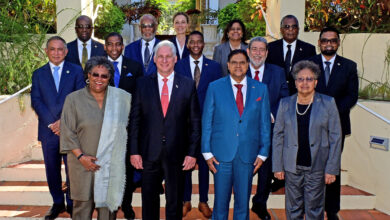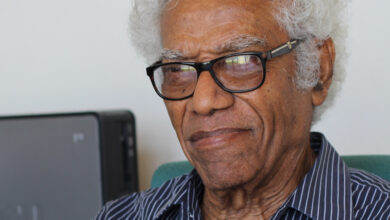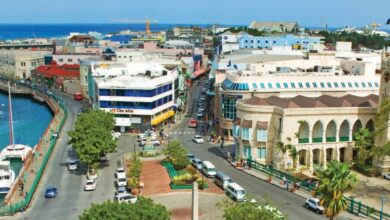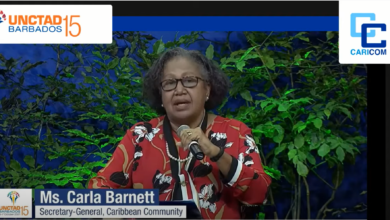Barbados and TT have signed a protocol on common procedures relating to the arrest of crew, or detention of fishing vessels, in each other country’s territorial waters.
“The protocol seeks to put in place agreed common procedures that will be applied whenever the crew and fishing vessel of one State are apprehended for fishing illegally in the waters of the other State,” Foreign Affairs Minister Winston Dookeran said yesterday.
Dookeran signed on behalf of TT while Barbados non-resident ambassador to TT, Robert Morris signed on his country’s behalf at the Ministry of Foreign Affairs, Tower C, Port-of-Spain.
Dookeran also noted that Government was aware that Barbados considers the conclusion of a fishing agreement an important part of the bilateral agenda between the two countries, and will work with the Barbadian authorities to make this possible.
According to the protocol, where a crew is arrested, or a fishing vessel detained, both parties shall maintain a log of events pertaining to the arrest, or detention. Within 48 hours of the docking of a detained vessel, the detention State shall provide information to the other State, including registration or licence number of the fishing vessel, date and time of detention, coordinates of the location where the vessel was fishing, and the numbers or weight, and the type of fish on the vessel when detained.
According to Dookeran, the protocol operationalises the notification provisions of the United Nations Convention on the Law of the Sea in the event of an arrest or detention.
He said that the regulatory framework will protect the fisheries resources in the Caribbean Sea, and specifically the sea between TT and Barbados.
TT and Barbados, he noted have subscribed to CARICOM’s Castries Declaration on Illegal, Unreported and Unregulated (IUU) fishing.
IUU fishing, he said, has been identified as one of the main threats to sustainable fisheries globally.
IUU fishing, Dookeran said, has been described as having far reaching ecological, environmental, social and economic impacts.
“It is in the mutual interest of both Trinidad and Tobago and Barbados to cooperate in addressing IUU fishing in the Member States of CARICOM,” he said.
In his remarks Morris said that the protocol for the arrest of a crew or detention of fishing vessels may provide a template for other states to follow.
Noting that the agreement precedes the fishing season in which some fishermen from Barbados might find themselves in TT waters in search of the Flying Fish — the national fish and a national symbol of Barbados, Morris said, the protocol will enable the maintenance of good order in the fishing areas.
It will also be effective in the development of the blue economy, he said.
The blue economy refers to the use of marine resources for development. He also expressed the need for a fisheries agreement between Barbados and TT which, he said, will enable joint ventures which could cut down on illegal fishing.






